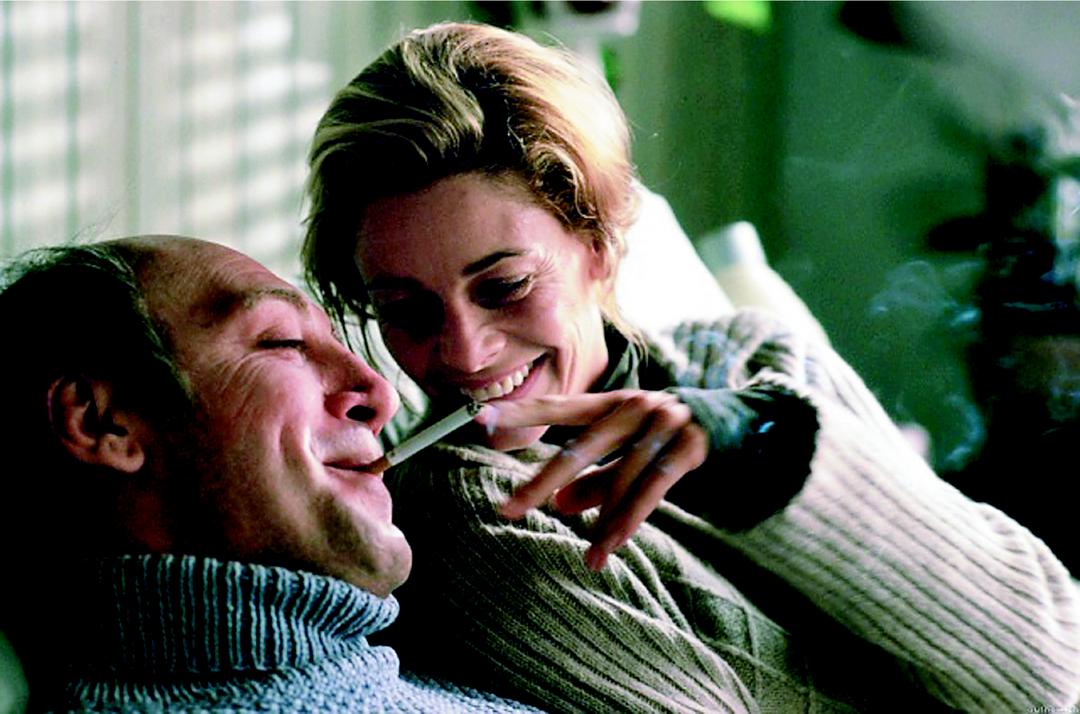The film is a bit of a departure for director Alejandro Amenábar, who made international waves with his twisty, atmospheric chillers Thesis, Abre Los Ojos (remade here in the U.S. of A. as Vanilla Sky) and The Others. The Sea Inside is a flourish-free emotional tearjerker of a drama examining the life of controversial Spanish poet/right-to-die advocate Ramón Sampedro.
Sampedro is here played by Europe's most virile acting talent since Gérard Depareiu chunked out and fell off the face of the Earth, Javier Bardem (Before Night Falls, The Dancer Upstairs, Collateral). The story picks up Sampedro as a 50-something quadriplegic, confined to a bed in his parents' farmhouse for the last 26 years. Although Ramón is surrounded by friends and family, he feels a burning desire to kick the bucket. “A life in this condition has no dignity,” he declares. Championed by a local right-to-die organization, Ramón is assigned a crusading and confident lawyer, Julia (Belén Rueda, Talk to Her), who is secretly dying of a terminal illness and, therefore, harbors some serious sympathy for Ramón's cause.
There are others, however, who do not agree with the man's choice. Chief among his detractors are members of his own family, such as his tacit father and his adamant brother, who see no reason for Ramón to end his life. As Ramón's cause gains national and international momentum, a paraplegic priest pays a visit to Ramon's bedside (more or less) to plead the “choose life” option. There are so many paralyzed people who lead such productive lives–look at Christopher Reeve or Christy Brown, the subject of the biopic My Left Foot–why would Ramón Sampedro choose to check out early?
Philosophically, The Sea Inside is an unusual film. Bardem plays Sampedro not as a morose victim, but as a happy-go-lucky firebrand, a natural poet who turns his wordsmithing skill into an impassioned plea for euthanasia. All of which is enough to make audiences wonder just why Sampedro had such a death wish. Obviously, it's impossible for a perfectly healthy person to know what life as a quadriplegic is really like. But it seems like Sampedro's fertile imagination and vivid interpersonal life would put the lie to his claim that life just wasn't worth living. Still, it's rare to find a film that gets you thinking about such weighty issues. Personally, I felt like arguing with the man: Look, pal, you live in a beautiful house in the country, your family loves you, you get a government check every month, you're a published author and Belén Rueda is hot for you–what's the problem? Though I might have disagreed with the main character's point of view, it's refreshing to see a film that elicits some reaction other than boredom.
Perhaps the best thing about The Sea Inside is that it understands and acknowledges both sides of the argument. As Ramón and Julia begin to work closer and closer on his multiyear fight to die with dignity, the two grow emotionally attached. At one point, the lovestruck Julia even agrees to a suicide pact, but backs down, her natural instinct to survive getting the better of her. Is she the coward? Or is Ramón the selfish one?
Bardem and Amenábar seem to have made a conscious decision on how to play this film. Obviously, suicide is not the right choice for every person. But, for whatever reason, it was Sampedro's choice, and the filmmakers seem to support it wholeheartedly. Whether or not people should have the ability to make that ultimate decision for themselves is the backbone of this film. The heartbeat, however, is Bardem's full-realized portrayal of Sampedro and his romantic (in every sense of the word) interaction with the people within his limited world. Even with Bardem confined to a bed and hidden under layers of aging makeup, its easy to see Sampedro's seductive charms. There are times when it would have been nice to see some of the stylistic flourishes Amenábar displayed in his earlier, more fantastic films as opposed to the reverential tastefulness that he hews to here. Still, with its excellent cast and intelligent script, The Sea Inside emerges as a bright, life-affirming story about death.




